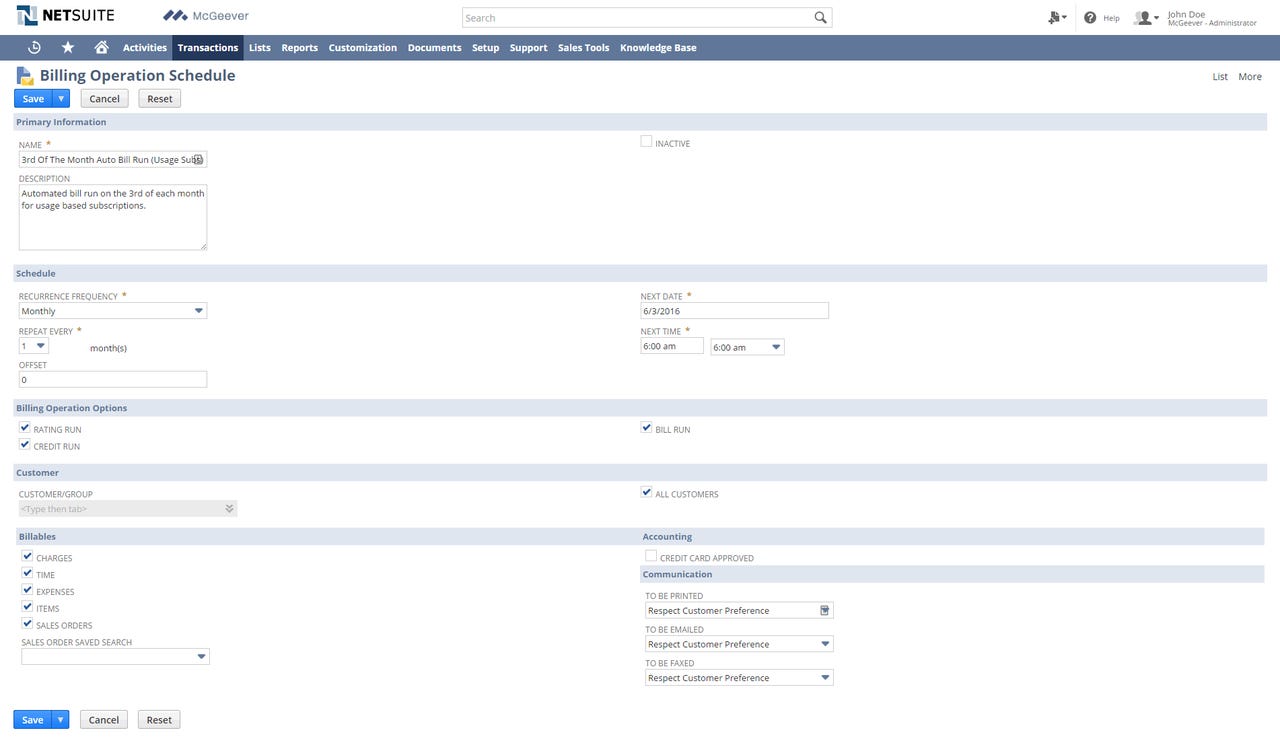NetSuite aims for more wallet share with unified billing, enabling business model shifts


NetSuite CEO Zach Nelson is re-positioning the company as one that's an essential billing partner as large enterprises aim to go digital and tweak business models regularly.
The company's move, outlined in a keynote at NetSuite's SuiteWorld powwow, is notable because it accompanies unified billing technology in SuiteBilling.
Nelson said his company has been working on unified billing for six years. What's the big deal? "Our platform unifies billing for any subscription, service, product or time and turn it to revenue" said Nelson, who spoke to ZDNet ahead of his keynote.
SuiteBilling, integrated into the core ERP system, will be available in June in NetSuite's next platform update. NetSuite's position is that it is targeting the next-generation company, which will increasingly include everything from startups to large enterprises.
Nelson said NetSuite has historically enabled "small companies to act big," but increasingly large enterprises have been asking for help to "act small."
Acting small refers to the ability to be nimble and digitally transform. For instance, Cisco's billing has gone from one based on hardware to subscriptions. Customer records, billing and revenue recognition all need to align to new business models. Cisco is joining Snapchat, Hyperloop and Daqri as customers on stage.
If successful with unified billion, NetSuite could be more of an option for large enterprises looking to standardize. That standardization ultimately means more wallet share for NetSuite.
"Larger companies have to shift business models and bill based on it," said Nelson. "These companies have to change midstream and be variable with billing. You can't spend three years on a business model change anymore."